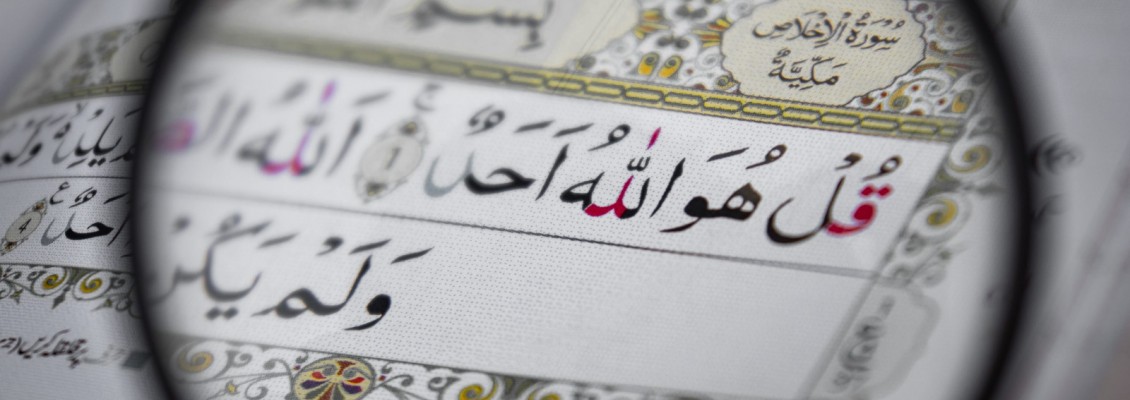
SURAH AL-IKHLAS: ONENESS OF GOD
Surah Al-Ikhlas is the 112th chapter of the Qur’an that carries a significant strength by emphasizing the oneness and uniqueness of Allah (God). The chapter consists of four verses, and it is frequently recited in the regular prayers and during various other significant occasions. The surah concisely conveys the essence of monotheism in Islam, highlighting that Allah is incomparable, unique, and self-sufficient. It serves as a fundamental reinforcement of the core faith in the oneness of God in Islam.
Say, “He is Allah, (who is) One,
In this verse, Allah commands Prophet Muhammad to declare that Allah is One which is a direct affirmation of the concept of monotheism and there is no other entity that possesses God’s essence or attributes.
Allah, the Eternal Refuge.
Here it is highlighted that Allah is not composed of parts, yet He is eternal, independent, and self-sufficient whom every creation relies on. Muslims turn to Allah as their ultimate source of guidance, direction, and assistance, acknowledging that He fulfills all their needs through His mercy and wisdom. This concept is deeply implanted in Islamic worship and spirituality, serving as a reminder to believers of the profound connection between the Creator and His creation.
He neither begets nor is born,
The verse explicitly rejects the idea of Allah having a child or being born and affirms that Allah is not bound by any biological occurrences or human-like attributes. This leads to the rejection of any divine offspring or children concept. If this is the case, then the idea of God having children implies a dependence or need which is contrary to the idea of God’s self-sufficiency. Believing in divine children might potentially result in perceiving God’s nature as polytheistic, where various divine entities have distinct roles therefore, assigning parental characteristics to God might result in picturing the Creator in human terms which is opposite of the transcendent nature of Allah.
Nor is there to Him any equivalent.”
The last verse underlines the incomparable nature of Allah. It declares that there is nothing like Allah, whatever belongs to Him including His attributes, essence and qualities are beyond comparison and no entity, deity or any created being can rival His supreme greatness.
In the surah simplicity and clarity of faith is distinctly seen which emphasizes the accessibility of Islam’s core beliefs and straightforwardness. For sincere worship and submission, one must recognize Allah’s oneness and uniqueness. Surah Al-Ikhlas reminds believers that the submission should be directed exclusively to Allah, as there is no other entity to worship.
Being one of the most powerful chapters in the Qur’an,
Surah Al -Ikhlas, confirms a sense of unity among believers by underscoring the
oneness of God concept. This unity surpasses differences in gender, race,
culture, language, or background. The surah serves as a regular reminder of the
core belief that shapes the entire Islamic faith and highlights the
significance of devotion to one true God.

Leave a Comment